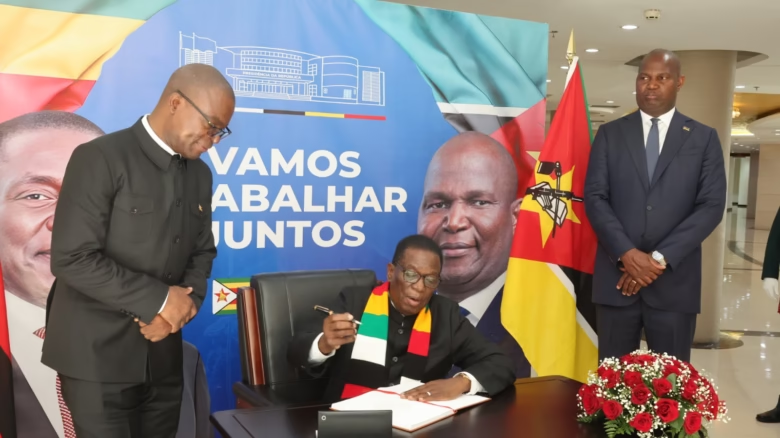
When Special Presidential Investment Advisor, Dr Paul Tungwarara, received the prestigious Golden Visa from the United Arab Emirates (UAE), it was not merely a personal milestone. It was a moment that reflected Zimbabwe’s evolving story under President Emmerson Dambudzo Mnangagwa’s vision, one of resilience, renewal, and repositioning on the global economic stage.
The UAE Golden Visa is no ordinary document. It is a 10-year residency permit awarded to individuals who demonstrate exceptional leadership in innovation, entrepreneurship, and international collaboration. Reserved for trailblazers, from technology pioneers to investment leaders, it is regarded globally as both a mark of trust and an invitation to participate in the Gulf nation’s future. For Zimbabwe, the fact that one of its own has been honoured in this way signals recognition of the country’s growing credibility in global markets.
Dr Tungwarara’s recognition is anchored in his visible role as a bridge-builder between Harare and Abu Dhabi, advancing President Mnangagwa’s “Zimbabwe is Open for Business” mantra. Over the years, he has facilitated high-level engagements and unlocked partnerships in sectors ranging from infrastructure and energy to agriculture and tourism. His efforts echo the administration’s broader economic diplomacy agenda, which seeks not only to attract capital but also to weave Zimbabwe into the web of global commerce and innovation.
What makes this development significant is its timing. Across Africa, only a handful of figures have been honoured with the UAE Golden Visa, and such gestures often come at pivotal moments in bilateral relations. For Zimbabwe, this comes as the country is accelerating Vision 2030, a national transformation blueprint that hinges on foreign investment, industrial growth, and innovation-driven development.
The award also underscores the depth of trust being cultivated between Zimbabwe and the UAE. It is not about fleeting contracts or short-term aid but about long-term partnerships rooted in mutual respect and strategic vision. The Golden Visa serves as a diplomatic bridge, opening new pathways for sustainable development cooperation and signaling the UAE’s confidence in Zimbabwe’s reform trajectory.
Dr Tungwarara himself was humble in his acceptance, attributing the honour to the bold leadership of President Mnangagwa, whose steady hand, he said, has inspired confidence in Zimbabwe’s future. His remarks highlight an important truth: investment diplomacy is never a one-man show. It is the product of leadership that dares to think beyond borders, complemented by envoys who carry that vision into international boardrooms.
For Zimbabwe, the significance of this recognition lies not in prestige alone, but in potential. It strengthens the country’s profile as an emerging investment hub in Africa and could attract greater interest from Gulf-based investors looking for opportunities in untapped markets. It also sets the tone for how Zimbabwe can leverage trust and credibility to expand trade, attract technology transfers, and accelerate industrialisation.
As President Mnangagwa continues to champion an outward-looking, business-friendly approach, moments like these remind the world that Zimbabwe’s story is no longer one of isolation. It is one of reintegration, innovation, and determination to be part of the global investment narrative.
Dr Tungwarara’s Golden Visa is therefore not just a recognition of individual achievement. It is a symbol of Zimbabwe’s new place on the global map, a nation determined to root its growth in international partnerships while carving its own path toward prosperity.




